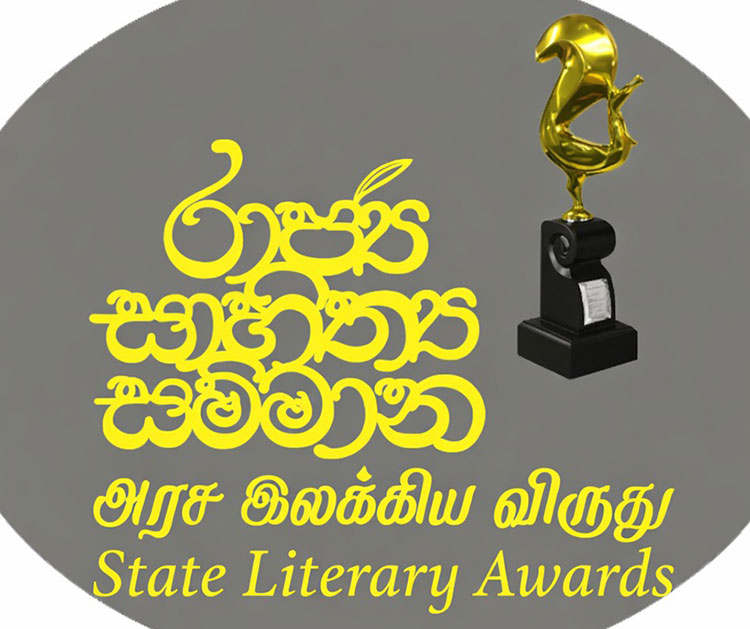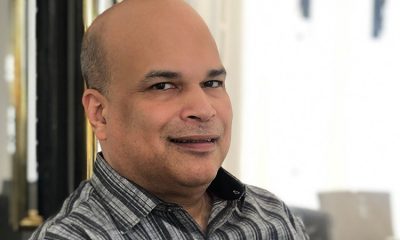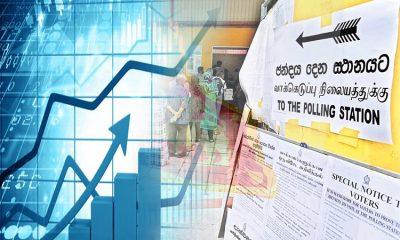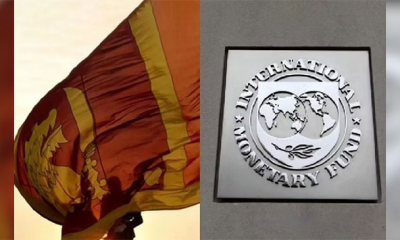Opinion
Role of professionals in achieving economic recovery

by Prof. R.P. Gunawardane
It is disheartening to note that most professional organisations in Sri Lanka have resorted to trade union action including public protests, demonstrations and strikes against the new income tax policy implemented by the government recently as a condition for receiving IMF aid package. Most general public and even the patients were inconvenienced by this trade union action.
While trade unions have all the rights to protest in a democratic country, an elite well-respected group like educated professionals should act in a more responsible manner.
Sri Lanka is going through an enormous economic crisis during the last several years and it became very crucial since last year due to the power crisis, fuel shortage and very high inflation unbearable to most citizens. Currently the government is negotiating for an IMF loan to get over this crisis as the only available option. There are certain conditions attached to this loan and those conditions have to be fulfilled to obtain the final approval. New income tax proposal is one of them and it is required in order to increase the government revenue up to a satisfactory level.
Our professionals including medical officers, university teachers, engineers, central bank officers all have gone through free education at primary and secondary levels with even free textbooks and then in the tertiary level at the university free of charge. In the university level some faculties like Faculty of Science including IT, Engineering, Medicine, Agriculture etc. require extensive funding for their equipment and consumables. All these funds are provided by the government.
Most received even Mahapola scholarships at the university, all funded by tax payer money. Some received foreign training at government expenditure. These benefits are extremely rare in other countries and even in the richest countries in the world.
In other countries higher education is not free, you need to pay tuition fees in addition to your personal expenses. Most students get loans and repay when they start work after graduation. This is not the case in Sri Lanka because we have free education. This invaluable gift is not appreciated by the most recipients.
Unfortunately, in Sri Lanka everyone wants the government to provide their needs free of charge without fulfilling their obligations. The government needs funds to provide essential services and support the most vulnerable population. The funds to the government come from taxation, if taxes are not paid the government cannot provide the essential services to the people. Most importantly this means that your children will not receive the same benefits received by you. It includes free education up to university level and free health services among many other benefits.
Although this is an extremely difficult period financially, it is time for our professionals to sacrifice for the benefit of future generations and pay back their dues even under difficult circumstances. After the difficult period is over there may be some concessions. It is time for our professionals to act diligently and save this nation from the current crisis.
It is reported that a large number of young professionals have left the country for employment abroad and some others contemplate leaving the country for greener pastures. However, it should be stressed that you cannot get away from income tax where ever you go! All have to pay income tax in developed as well as developing countries at increasingly higher rate depending on your income. In USA even the student stipends are taxed. There is no way one can get away from this process. Tax is always deducted by the institution in all payments. In addition, it is compulsory for each person to file tax returns every year. If there is an overpayment that amount is returned immediately. Non-payment or under payment of taxes is considered one of the biggest crimes in USA.
No country can survive without a proper taxation system. Some Sri Lanka businessmen and professionals are used to underpayment or avoiding taxes while at the same time demanding higher salaries, benefits and services from the government. There is no logic in this expectation.
In order to get the support of the professionals in the country our government should also act responsibly by drastically minimising the government expenditure in a transparent way. For this purpose, some suggestions are given below:
Sri Lanka is a small country and does not need a huge cabinet of ministers. Like in most other countries and considering the size of the country and its economy 12 ministers are more than sufficient. There should be no deputy or state ministers, secretaries of the ministries can perform these functions.
Minimize the personal staff of ministers, number of vehicles and allowances for fuel, curtail foreign travel, minimise staff in foreign missions and close down all unproductive embassies abroad.
Productivity should be increased by reducing the number of holidays. Sri Lanka has too many holidays (26 this year) in comparison with other countries (USA-10, Japan-15, India-16, Bangladesh-15)
All forms of corruption and inefficiencies of the government institutions should be investigated and appropriate action should be taken on priority basis.
Genuine attempts by the government to minimize expenditure and reduce corruption will go a long way to convince the professionals and other general public to cooperate with the government. While the central government is totally responsible for establishing stability in the country, it is the responsibility of our professionals to act diligently with restrain during this crisis and contribute effectively towards achieving economic recovery in Sri Lanka for the benefit of future generations.
Opinion
A paradox of history

There seems to be a striking similarity between ancient Greece and modern Britain. Both countries remain paradoxes of history. Greece was a small city state constantly at war with neighbouring countries. It did not have a big army, but it had considerable sea power. However, Greece was a leading state over the whole of the Mediterranean. In fact, Greece was once a super power in the Western world.
Britain was very powerful in the 19th century. British justice was administered in Africa, India and Ceylon. British factories flourished in many countries and schoolchildren started reading R.L. Stevenson’s ‘Treasure Island’ and the works of Rudyard Kipling. What Ralph Waldo Emerson said in the 1850s is still valid today. He said, “If there’s one test of national genius universally accepted, it is success; and if there be one successful country in the universe for the last millennium, that country is England. It is the best of actual nations.”
In World War I, Britain faced a crushing defeat. Eventually, the British Empire was reduced to a Commonwealth. World War II shattered the image of Britain further. Although Britain lost much of its power, it continued to be an influential country. Even after achieving independence, India retained English as an official language. The British parliament system is well established in many Commonwealth countries. Some people still wonder how England still exercises its influence over the minds of men and women.
Staying power
There are many powerful countries in the world today such as the United States, Russia and China. Although England is not a super power, she has staying power. According to Oliver Wendell Holmes, a good part of greatness is simply being there. For that matter, England has been there for many centuries. So far no other country has been able to defeat her. As a result, sometimes we wonder whether we can have a world without England.
England has had an unwritten Constitution for a very long time. Other countries have emulated her political institutions. The British people have an established church with complete religious freedom. Although there are social classes in Britain, there has been no major clash among them. Unlike in many other countries, there are only two leading political parties in England. When the Labour Party is in power, the government is not subservient to labour. Similarly, when the Conservative Party is in power, the government is not conservative.
Most British colonies in the East including India and Ceylon did not sever the cultural and emotional links with Britain and retain them even after achieving independence. India became independent in 1947, but she decided to retain English as an official language. By doing so, India produced a number of English writers such as R.K Narayan. However, Ceylon did not give English any official status and treated it as a link language. As a result, students paid less attention to learning English. They were made to understand that everything can be done by learning Sinhala and Tamil. We have failed to produce English writers in the calibre of J. Vijayatunga who wrote ‘Grass for my feet.’
Politically shrinking
The United Kingdom is politically shrinking. However, its influence vibrates throughout the world. English has brought many nations together. There is a common understanding among countries that share the English language and literature. William Shakespeare’s dramas are staged in countries such as China where English is not an official language. People have come to the conclusion that English has become a broker of ideas and institutions.
England is not an aggressive country. However, if provoked, it can deliver a mortal blow to its enemy. British Prime Minister Margaret Thatcher showed her mettle as the iron lady. Britain held the fort against the might of Napoleon Bonaparte who ruled France. The country can still boast of a heavy moral credit. The British stick to their international agreements. The power of England draws mainly from its language. British people say ‘It’s right’ when it is right’. When it is not right, they say, ‘It’s not right.’ Meanwhile English occupies a pre-eminent place in world languages. All the research work in many parts of the world is available in English. You can learn any subject easily through English.
Apart from the language, people respect British standards which are technical specifications and quality benchmarks developed by the British Standards Institution. The United Kingdom’s independent national standards body was established in 1901. It maintains over 37,000 standards covering industries such as construction, manufacturing and technology ensuring safety and reliability.
British English
Standard British English is the variety of English that has undergone codification to the point of being socially perceived as the standard language associated with formal schooling, language assessment and official print publications. For historical reasons dating back to the rise of London in the ninth century, the form of language spoken in London and the East Midlands became the Standard English used in schools, universities, literature and law.
British English functions as one of the two major foundational and standard varieties of the English language alongside American English. It serves as a primary reference point for spelling and grammar. It acts as a global standard, and international institutions are often defined by specific pronunciation.
Most Sri Lankan doctors primarily move to England for postgraduate training, higher specialisation and better career prospects. They are driven by superior training infrastructure, world-class facilities and globally recognised qualifications.
To sum up, when you think of learning an international language, there is no alternative to English. If you wish to read literature, you cannot ignore eminent English dramatists and poets such as William Shakespeare and John Milton. Many leading Sri Lankans like S.W.R.D. Bandaranaike were Oxford University products. Therefore, English deserves to be made an official language in Sri Lanka.
By R.S. Karunaratne
Opinion
State Literary Awards only for the rich?

The Department of Cultural Affairs has once again called authors, and publishers to lodge their entries for selection of the prestigious State Literary Awards 2026.The criteria and conditions required and notified in the public domain, makes it mandatory for the literary work to be printed and published prior to submission for consideration of the awards. There is absolutely no provision for writers to submit their work in Manuscript form.
Where does that leave the financially impoverished writers who are talented, creative and wish to submit a well edited typescript of their work as manuscript for consideration of the State Literary Awards? In a literary environment that encourages a proliferation of self-published books of all forms and features presented by vanity publishers who have their eye on the purse of the author than on literary merit and artistic excellence, it is easy to show that you are an ” established writer” by spending your cash abundantly towards glossy covered books which the printing industry and fawning publishers will lap up with greed.
Even the Gratiaen Prize in Sri Lanka, sponsored by world-renowned Michael Ondaatje allows for Manuscript entries together with published books. Significantly, the manuscript entries that win the prize are assisted to publish their work which is part of the winnings. Many a young, aspiring writer with little funds who won the Gratiaen Prize on merit, but had submitted their entry in manuscript form have been thereby encouraged to submit their work on merit basis only.
It is a fact that the Commonwealth Short Story Prize, a massive state-supported initiative across 56 nations accepts only unpublished short fiction. Further, several countries in the world have established national or state level literary prizes that specifically accept unpublished manuscripts to provide equity in discovering new talent and supporting national literature without bias or favour. In Australia, Jamaica, Philippines, major national awards organised by the State for literature, specifically accept unpublished manuscripts for consideration.
Let’s face the truth. The printing costs are escalating. There is little demand in Sri Lanka for literary work in the English Language in particular. Traditional Publishing where the literary work is reviewed and assessed for talent and creativity and thereafter published is seldom found. The reviews and critical analysis of literary works are rare. But publishers make a pile by pandering to the vanity of aspiring writers who have the financial clout to pay their way through to being featured in prestigious award ceremonies and accolades. Thereafter, their substandard works get a further fillip by bearing the label of “Won the State Literary Award for Literature”! It is a cycle of literary charlatans and their pimps in the publishing industry for whom the price that is paid for publishing and not Meritocracy is the sine-qua-non.
Is this the level playing field promised by the NPP Government and their Marxist protagonists? A government that was voted into power on the platform of affording fair opportunity and equality seems to discriminate in favour of the Haves against the Have- nots in the cultural department to say the least! Anil Fernando
Opinion
Delivering on English

English literature offers a rich heritage of wonderful ideas and thoughts. The reader can be intellectually uplifted. It brings refreshing new vistas and stimulating new ideas. However, this English literature has to be first introduced to the student in order to fire up his or her interest and be made aware of this rich source of culture. Students of basic English as a second language work hard and learn all the hum-drum mechanics of the language, for which they get tested and graded. But importantly, nae crucially, this should be followed up with intellectual rewards for the students’ efforts – which, of course, is the enjoyment of the works of literature of the many great writers in the English language. This is the great payoff, the great dividend for all their efforts but this, apparently goes missing.
One of the obvious reasons for the lack of “follow through” may be lack of time allocated in the curriculum – or, perhaps, more darkly, the teachers’ own lack of knowledge of the great range of good reading materials produced by the countless generations of literary geniuses who have gone before. Such writers have laid down for us a heritage of glorious literary works in books and essays, all of which are to be found in any good library. It is thought that much of this good literature ought to be introduced to all students of English, “full stop,” as part of developing a knowledgeable and cultured society. (Isn’t that what we want?) Reading English literature should bring an intellectual enrichment to all those willing to drink from this Bacchanalian horn of plenty.
It must be said finally, that it can be fairly expected that most young people, especially those learning English as a second language, are totally unaware of the many outstanding pieces of writing that propel English to stand tall amongst the rest. That is, students need to be first introduced to great writings and have a spark of interest ignited in these great works of literature.
For example, by being introduced to “Daffodils,” a short descriptive poem by William Wordsworth, the student can get some very pleasant ideas to think on.
Do not overlook Conan Doyle’s “Sherlock Holmes” detective stories, each one captivating the reader’s attention right to the end. It is by these short stories that the novice reader can first consolidate his power of reading.
For light reading Jerome K. Jerome’s book “Three Men in a Boat” is suggested. On one occasion he goes to the library suffering from a slight hay-fever (allergy) seeking a cure. He consults a book, “Lexicon of Pharmacology”, and recoils in horror as his symptoms fit most of those diseases described in the book! He concludes he cannot live much longer and staggers home to rest and recuperate! This is a well related tale in the book – although seemingly quite implausible!
Similarly, by having the poem meanings explained, e.g. “What is Life if Full of Care?” by William Henry Davis – how he regrets that we humans are always in a hurry, too busy to notice or see the delights of nature, and scenes of natural beauty, e.g., a young woman’s smile as she passes by; we have no time to make friends and even kiss her. Regrets! Explaining this to students would bring a certain intellectual insight.
John Keats’s poem, “Ode to Autumn” is another great work describing the ripening fruits of the autumn season and how nature as a living being, brings to fruition all the good things of a rural landscape quietly humming with warmth after a hot summer.
Again, it is likely necessary to explain to a young, Sri Lankan mind the meaning of the descriptive poetry found in this magnificent poem.
This is the real English to be tasted and then swigged at lustily in pleasure and satisfaction, not some writing airing historical grievances for children to study!
1970 British Cohort Study
It should be observed here that the ‘1970 British Cohort Study’ followed 70,000 people to examine various aspects of their lives. One result discovered was that if a young person reads a lot, it develops his/ her general intelligence no-matter his parents; it makes him smarter.
It was also noted that reading brings life-long benefits; it improves mood, it helps with social skills, increases empathy, reduces anxiety, protects against depression and slows brain decay, the study found.
But these days many young people never gain a great competence in reading English; the fear is that standards are falling. This is bringing poorer critical thinking, less depth of personality and less empathy for others which has the result of a more turbulent society.
People are urged to switch off their headphones and read more of what they like – try reading the newspapers!
Priyantha Hettige
-

 Life style2 days ago
Life style2 days agoMarriot new GM Suranga
-

 Midweek Review6 days ago
Midweek Review6 days agoA question of national pride
-

 Features2 days ago
Features2 days agoMonks’ march, in America and Sri Lanka
-

 Business6 days ago
Business6 days agoAutodoc 360 relocates to reinforce commitment to premium auto care
-

 Opinion5 days ago
Opinion5 days agoWill computers ever be intelligent?
-

 Features2 days ago
Features2 days agoThe Rise of Takaichi
-

 Features2 days ago
Features2 days agoWetlands of Sri Lanka:
-

 Midweek Review6 days ago
Midweek Review6 days agoTheatre and Anthropocentrism in the age of Climate Emergency





















